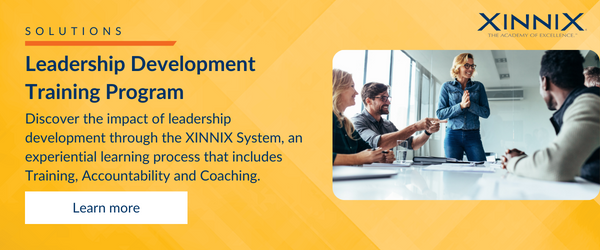People are the most valuable asset of a company, and leadership is critical. Nurturing strong working relationships, teaching new and improved processes, and mentoring are crucial organizational success activities.
It may be easier to leverage the same coaching strategies for all sales team members, but, unless everyone is of the same generation, you will need to use different techniques for each.
Leading a multigenerational team means knowing the characteristics and preferences of each generation. With that information, you can create a motivational, educational, and positive environment and empower your salespeople to meet their objectives and thrive as a team.
Teams including younger members require you to understand millennials and Generation Z. Since millennials have been in the workforce for several years, you probably have already coached one or two of them. Here, let’s take a look at Gen Z.
Who is Generation Z?
These workers, who composed nearly a quarter of the workforce in 2020, are already playing a significant role in the economy. Born between 1996 and 2012, there are still several years before this entire population enters the workforce.
Previously, millennials and Gen Z were combined as one group. They do, in fact, share several similarities — political views, social media presence, technological proficiency, and an interest in personal finance.
However, Millenials and Gen Z in the workplace perform differently and are motivated differently. If you manage a multigenerational team, you might notice these key differences between Gen Z and millennial employees:
- They prefer their own workspaces, while millennials prefer collaborative environments.
- They’re pragmatic and realistic, as opposed to the optimism of millennials.
- They appreciate online privacy compared to millennials who grew up sharing information about themselves.
- They’re interested in innovation, whereas millennials prefer a focus on progress.
- They’re digital natives, while millennials were digital pioneers.
What is Gen Z Looking For?
Best practices for leading millennials don’t translate well to Gen Z. Precisely, what does Gen Z want in the workplace?
Flexibility
Hybrid and remote-work models were embraced by necessity during the pandemic; however, it is clear that they are both here to stay. According to a LinkedIn survey, between 53% to 72% of workers by generation had left or considered leaving a job due to a lack of flexible work policy. Leading the pack was Gen Z.
These workers prioritize a hybrid work model that allows them to have a strong role in the decision of in and out-of-office schedules, and this priority is all about communication.
Because over half of this generation prefers to speak with family, friends, and coworkers face-to-face, the best way to communicate with Gen Z in the workplace is through in-person meetings. This generation grew up using computers and is very comfortable participating in virtual meetings, but they value getting together with coworkers and management. A hybrid work model allows them to have the best of both worlds.
Diversity and Company Culture
Effectively attracting and hiring Gen Z workers requires both diversity and a company culture that values each team member.
As one of the most diverse generations, workers in this age range embrace diversity with 62% of them seeing the societal benefits of increased diversity. By also embracing diversity in the workplace, you will be more likely to appeal to this group of employees.
In addition to actively seeking diversity at the “office,” Gen Zers are interested in a healthy culture. The ideal workplace culture for them focuses not just on job performance but also on practices that support team members.
Prioritizing mental health and promoting healthy work/life harmony goes a long way with this group. Innovation, one of the characteristics of Gen Z, should be used to develop programs that highlight the value of the generation. For example, mutual mentoring programs allow both older and younger generations to be in the teacher and student roles.
Financial Stability and Perks of the Job
One question we haven’t answered is this — what motivates Gen Z in the workplace?
Having grown up during and after the 2008 recession, the workers in this age group are motivated by financial stability and perks, including financial stipends.
Salary is a priority. Underpay this generation, and they will leave for greener pastures. Another necessity is health insurance, considered a must-have by 70% of Gen Z workers. Other benefits and perks such as student loan assistance, stipends to support work-from-home offices, and continuing education allowances also are major motivators.
Leadership Excellence Starts with Generational Understanding
Understanding Gen Z in the workplace is only the beginning. Achieving excellence is only possible through empowering all members of your sales team.
When you take the time as a leader to learn what each generation of workers prioritizes and how to motivate them, you have the information you need to get to know each salesperson as an individual. And then you can coach your team to excellence.



